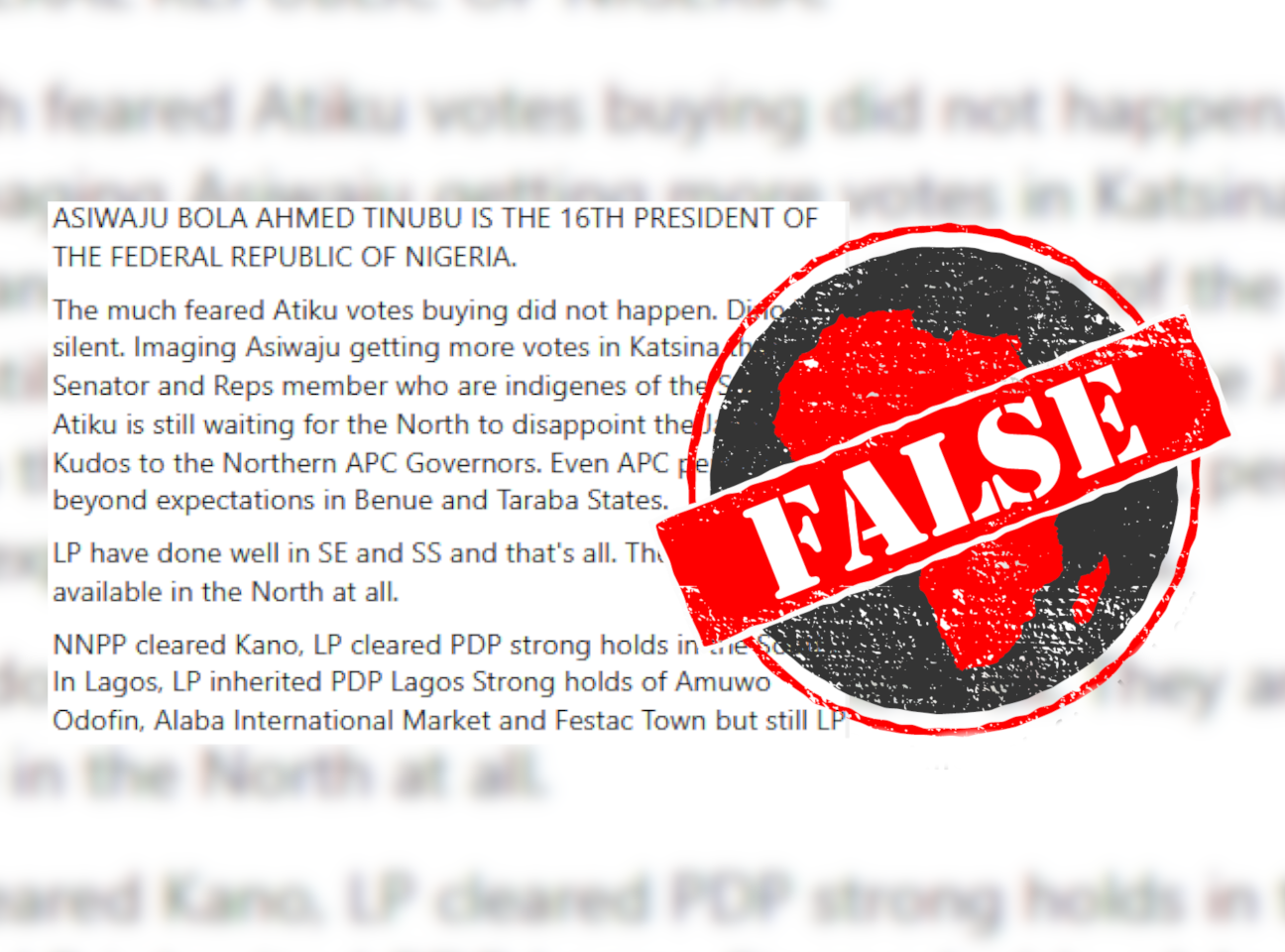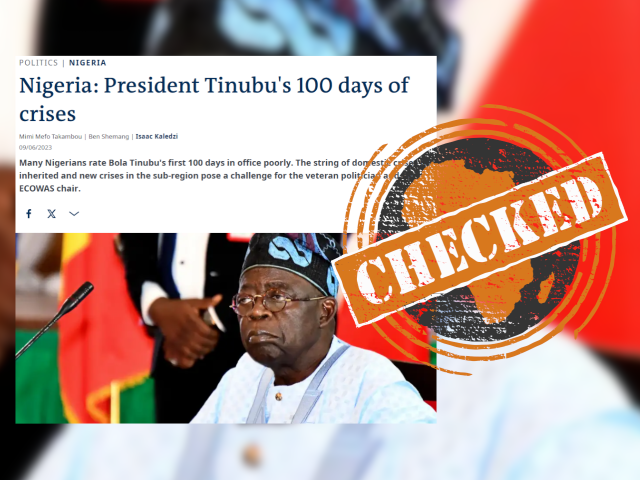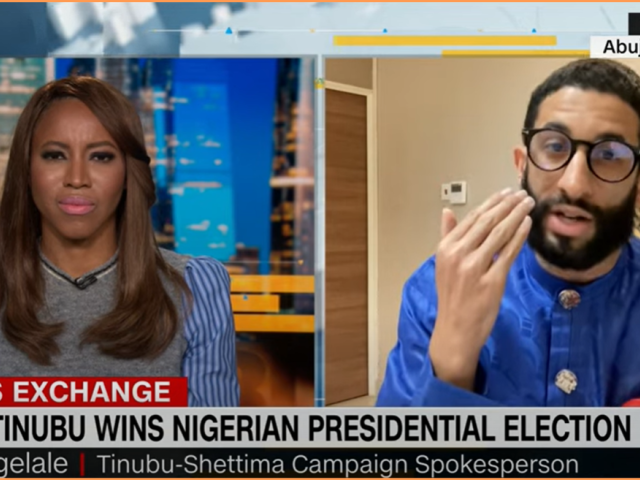IN SHORT: Social media posts in Nigeria claim president-elect Bola Tinubu is the country’s 16th president. But this isn’t accurate – he will become the seventh democratically elected president once inaugurated.
After Nigerians voted to pick a new president and federal legislators, a claim that president-elect Bola Tinubu was Nigeria’s 16th president surfaced online.
Bola Tinubu was declared the winner of the 25 February 2023 presidential election on 1 March. He contested on the ticket of the ruling All Progressives Congress (APC).
The Facebook post reads: “Congratulations to the Progressives Asiwaju Bola Ahmed Tinubu is the 16th president of the Federal Republic of Nigeria.”
A video shows the percentage of votes the APC received in each Nigerian state. The video has been viewed more than 300,000 times since it was posted.
The post was published days before Nigeria’s Independent National Electoral Commission (Inec) finished counting the votes and announced the winner of the presidential election.
The same claim was posted on Facebook here, here and here, but without the video.
Is Tinubu the 16th president of Nigeria? We checked.

Nigeria’s first and second republics
According to the Nigerian government, 16 presidents and heads of state have governed the country since its independence in 1960.
Nigeria’s first republic was between 1960 and 1966, during which prime minister Tafawa Balewa (1960-1963) and president Nnamdi Azikiwe (1963-1966) governed the country.
The first republic ended with a military coup in 1966 and four military heads of state ruled from 1966 to 1979, when the second republic began.
Shehu Shagari was the only president of the second republic, before the military regained power through another coup d’état in 1983.
Nigeria was meant to return to democracy after the 1993 elections, but because of unrest an interim national government, headed by Ernest Shonekan and set up by Ibrahim Babangida, the military head of state at the time, was in place between August and November 1993.
Military leader Sanni Abacha imprisoned Moshood Abiola, winner of the disputed 1993 elections, and ruled the country till his death in 1998.
Nigeria finally returned to democracy in 1999 when Olusegun Obasanjo was democratically elected president.
Kamilu Fage, a professor of political science at Bayero University Kano in northern Nigeria, told Africa Check that to call a military head of state a president is a matter of “semantics”.
“However, if by president we mean a democratically elected head of state, then the military head of state is not qualified to be called a president. This is because the military seized power by the barrel of a gun while a president was democratically elected.”
Fage said Ernest Shonekan could not be regarded as a president because “like the military, chief Ernest Shonekan was never elected by Nigerians. He was imposed on Nigeria by the then outgoing IBB military regime”.
Nigeria’s presidents since independence
Fage said from independence to 2023 Nigeria has had “six substantive presidents and a president-elect”.
The six presidents were Nnamdi Azikiwe (1963-1966), Shehu Shagari (1979-1983), Olusegun Obasanjo (1999-2007), Umaru Musa Yar'adua (2007-2009), Goodluck Ebele Jonathan (2009-2015) and Muhammadu Buhari (2015-2023).
Buhari will be replaced by president-elect Bola Tinubu who is yet to be inaugurated at time of writing. After his inauguration, Tinubu will become Nigeria’s seventh president.
Republish our content for free
For publishers: what to do if your post is rated false
A fact-checker has rated your Facebook or Instagram post as “false”, “altered”, “partly false” or “missing context”. This could have serious consequences. What do you do?
Click on our guide for the steps you should follow.
Publishers guideAfrica Check teams up with Facebook
Africa Check is a partner in Meta's third-party fact-checking programme to help stop the spread of false information on social media.
The content we rate as “false” will be downgraded on Facebook and Instagram. This means fewer people will see it.
You can also help identify false information on Facebook. This guide explains how.





Add new comment